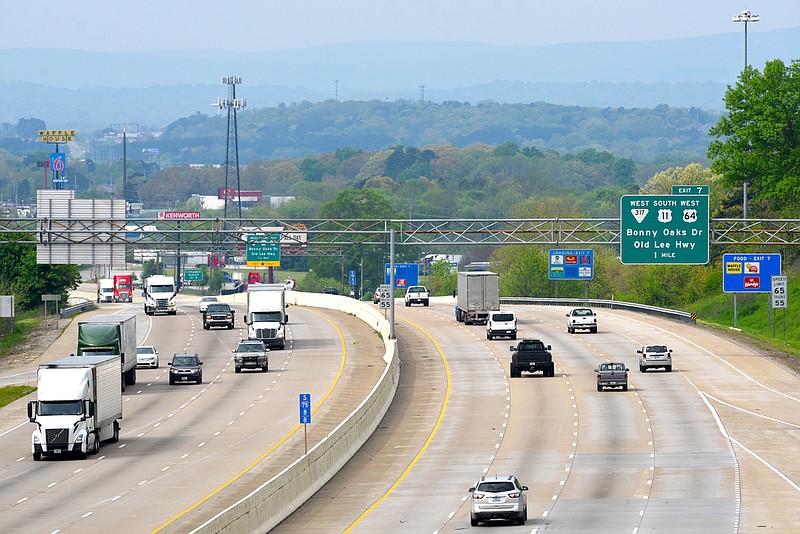New research using location data from smartphones showed more than 62,000 additional people visited Georgia the week after shelter-in-place orders were lifted there by Gov. Brian Kemp.
The data comes from the University of Maryland's Transportation Institute and is some of the first hard evidence that reopening some states ahead of others could prolong the spread of the coronavirus and possibly cause a second spike in cases.
Certain businesses were allowed to reopen in Georgia starting April 24. The week after, data shows a daily average of 546,159 people traveled there from other states.
That number included 62,440 more daily trips than in the week before the reopenings.
The majority of those drivers - 92% - came from Tennessee, Alabama, South Carolina and Florida.
Meagan Fitzpatrick, an assistant professor at the University of Maryland School of Medicine, has her Ph.D. in epidemiology of microbial diseases and was a fellow at the Center for Vaccine Development at Maryland.
As a public health expert, Fitzpatrick is able to use the data in order to make sensible recommendations backed up by research, she said.
"This mobility and social distancing data is really valuable to those of us on the public health side because we understand that when we make a recommendation and we put restrictions into place, they can't always be perfectly followed," she said. "It gives us a little bit of an advanced warning if we see activity rising in a particular place that we need to pay particular attention to."
Georgia, for example, might be a place that Fitzpatrick and other public health officials might have to keep a close eye on "to catch any cases that we might expect to be emerging within a few weeks time."
A few days after Georgia started to allow businesses such as bowling alleys, movie theaters and hair salons to open, Tennessee Gov. Bill Lee allowed non-essential businesses to open.
Lei Zhang, lead researcher and the institute's director, and fellow researchers found that 11% of the 62,440 new drivers to Georgia were from Tennessee. The biggest jump came from Florida (17%) where some beaches reopened but most businesses had still been closed under the state's shelter-in-place order.
Fitzpatrick said the data shows her that in an area like the Baltimore-Washington, D.C., region, a coordinated reopening is essential to making sure a second spike doesn't come.
"It's what we expected, but now it's being quantified," she said. "When one place reopens and the others do not, what you see is that people go from one place to another. If you have a state that felt confident in its reopening because it felt that it was managing its epidemic, it is getting an influx of people from states that have not felt confident in reopening."
Georgia is a state to keep an eye on, especially after a new COVID-19 model from Georgia Tech projected increases of thousands of cases and deaths in the state by mid-August.
The university's Center for Health and Humanitarian Systems and Health Analytics Group say deaths could range from 6,100 to 17,900 by August, depending on how people approach social distancing.
Meanwhile, Kemp tweeted Saturday the number of COVID-19 patients now hospitalized in Georgia (1,203) and the number of ventilators in use (897) is the lowest since hospitals started reporting those numbers on April 8.
"Georgia has a higher prevalence of coronavirus infection right now than the neighboring states," Fitzpatrick said. "What could be happening is that people go to Georgia where they're more likely to be infected and they bring the infection home."
She also said it's working both ways now that states are starting to reopen.
"None of these states have a situation we would call controlled," Fitzpatrick said. "The infections are flowing now both ways. The problem is that it creates an incentive for a new transmission chain. people from Tennessee didn't have an incentive to go to Georgia to create that new social interaction, where before, it didn't exist."
Contact Patrick Filbin at pfilbin@timesfreepress.com or 423-757-6476. Follow him on Twitter @PatrickFilbin.
